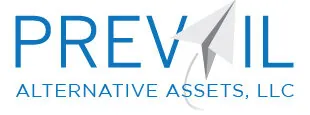For accredited investors, real estate is not only a way to build wealth but also one of the most tax-efficient investment strategies available. With the right approach, investors can reduce taxable income, defer capital gains, and maximize after-tax returns.
At PrevailAA, we help accredited investors in Kansas City and Leawood take full advantage of real estate’s powerful tax benefits. This guide explores key tax incentives available to accredited investors and how they can optimize their portfolios for long-term financial success.
What Qualifies an Investor as Accredited?
Accredited investors meet specific financial criteria that allow them to access exclusive real estate investments and tax advantages.
Accredited Investor Qualifications (As of 2024):
- Income Requirement – Earn at least $200,000 per year ($300,000 with a spouse) for the past two years.
- Net Worth Requirement – Have a net worth of more than $1 million, excluding a primary residence.
- Financial Credentials – Investors holding Series 7, 65, or 82 licenses also qualify.
- Institutional Investors – Trusts, LLCs, and partnerships with assets exceeding $5 million qualify as well.
Accredited investor status provides access to exclusive real estate tax benefits and investment opportunities.
How Accredited Investors Benefit from Real Estate Tax Incentives
Real estate investments provide various tax advantages that help reduce liabilities and maximize profits.
Top Tax Benefits for Accredited Investors:
- Depreciation Deductions – Offset taxable income from rental properties.
- 1031 Exchange Tax Deferral – Allows investors to defer capital gains taxes by reinvesting in similar properties.
- Capital Gains Tax Reduction – Long-term real estate investments benefit from lower tax rates.
- Opportunity Zone Investments – Provides capital gains tax relief for investments in designated economic growth areas.
- Pass-Through Deductions – Investors in real estate syndications can claim deductions without direct property ownership.
By applying these tax strategies, accredited investors can significantly reduce tax burdens and increase overall returns.
Depreciation as a Tool for Reducing Taxable Income
Depreciation is a key tax benefit that allows real estate investors to deduct a portion of a property’s value each year.
How Depreciation Works:
- Residential Properties – Depreciated over 27.5 years.
- Commercial Properties – Depreciated over 39 years.
- Bonus Depreciation and Cost Segregation – Allows investors to accelerate depreciation by breaking assets into shorter timelines, increasing early tax savings.
- Pass-Through Tax Benefits – Investors in real estate syndications receive depreciation deductions even as passive investors.
Depreciation provides a valuable way to offset rental income and lower taxable earnings.
Using 1031 Exchanges to Defer Capital Gains Taxes
A 1031 exchange is one of the most effective strategies for deferring capital gains taxes while expanding a real estate portfolio.
How a 1031 Exchange Works:
- Sell an Investment Property – Instead of paying capital gains taxes, reinvest proceeds into a similar property.
- Tax Deferral – Capital gains taxes are deferred indefinitely if reinvested correctly.
- Portfolio Growth – Investors can use tax savings to acquire larger, more profitable properties.
- Estate Planning Benefits – Heirs inherit the property at a stepped-up basis, eliminating past capital gains taxes.
A 1031 exchange is a critical strategy for accredited investors seeking long-term, tax-efficient portfolio expansion.
Opportunity Zones: A Strategy for Tax-Free Real Estate Growth
Accredited investors can take advantage of Opportunity Zones, which provide tax incentives for investing in government-designated development areas.
Opportunity Zone Benefits:
- Deferral on Capital Gains Taxes – Postpone taxes by reinvesting in an Opportunity Zone Fund.
- Tax-Free Appreciation – Investments held for at least ten years are exempt from additional capital gains taxes.
- Diversification into Emerging Markets – These designated areas have high growth potential.
Kansas City and other regions in Kansas offer prime Opportunity Zone investments with significant tax incentives.
Capital Gains Tax Reduction Strategies for Real Estate Investors
Real estate investors benefit from favorable capital gains tax treatment compared to ordinary income taxation.
Ways to Reduce Capital Gains Taxes on Real Estate:
- Long-Term Holding – Properties held for more than one year qualify for reduced capital gains tax rates, typically ranging from 0 to 20 percent.
- 1031 Exchanges – Defer capital gains taxes by reinvesting in new properties.
- Installment Sales – Spread capital gains taxes over multiple years by structuring property sales as installment payments.
- Opportunity Zone Investments – Completely eliminate capital gains taxes on long-term holdings in designated zones.
Strategic capital gains tax planning allows investors to keep more of their profits while minimizing tax exposure.
Tax Benefits for Passive Income in Real Estate
One of the most attractive aspects of real estate investing is the ability to generate passive income while benefiting from favorable tax treatment.
How Real Estate Generates Tax-Efficient Passive Income:
- Depreciation Offsets Rental Income – Tax deductions reduce taxable rental earnings.
- REIT Dividends with Preferential Tax Treatment – Real Estate Investment Trusts offer dividends with lower tax rates.
- Pass-Through Deductions from Syndications – Investors in private real estate funds can deduct operating losses.
- Private Real Estate Lending – Interest income from real estate-backed loans is taxed at preferential rates for accredited investors.
Real estate provides accredited investors with multiple ways to earn passive income while reducing tax liability.
Why Work with PrevailAA for Tax-Optimized Real Estate Investing?
At PrevailAA, we specialize in helping accredited investors in Leawood and Kansas City maximize tax advantages through strategic real estate investments.
Why Work with Us?
- Exclusive Tax-Advantaged Investment Opportunities – Access to real estate syndications, private funds, and REITs.
- 1031 Exchange Expertise – Guidance in structuring tax-deferred transactions.
- Custom Portfolio Planning – Tailored investment strategies for tax efficiency and high returns.
- Extensive Market Knowledge – Expertise in identifying tax-friendly real estate deals in Kansas City.
We help investors reduce taxes and increase profitability through structured real estate investing.
Start Optimizing Your Real Estate Tax Strategy Today
Accredited investors in Kansas City and Leawood can take advantage of real estate’s powerful tax benefits today.
How to Get Started:
- Schedule a Consultation – Speak with our team to discuss tax-efficient strategies.
- Explore Tax-Optimized Investment Opportunities – Learn about depreciation, 1031 exchanges, and passive income options.
- Build a Tax-Efficient Portfolio – Apply strategic real estate investment methods to reduce tax liabilities and increase profits.
- Secure Long-Term Wealth – Implement tax-saving strategies to grow and protect wealth.
Contact PrevailAA today to explore real estate tax strategies designed to enhance investment performance.
Final Thoughts: Maximizing Tax Savings with Real Estate
Key Takeaways:
- Accredited investors can benefit from significant real estate tax incentives.
- Depreciation, 1031 exchanges, and Opportunity Zones reduce taxable income and enhance profits.
- Kansas City offers lucrative real estate tax benefits for investors.
- PrevailAA provides accredited investors with strategies to structure tax-optimized portfolios.
Interested in maximizing tax savings? Contact us today for a consultation. Visit our website or call now to explore exclusive investment opportunities.
McLean Kistner | Manager of Private Investment | mkistner@prevailiws.com
Regan Smith | Investor Relations | rsmith@prevailiws.com
913-295-9500














